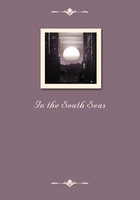
第114章 THE KING OF APEMAMA(1)
THUS all things on the island,even the priests of the gods,obey the word of Tembinok'.He can give and take,and slay,and allay the scruples of the conscientious,and do all things (apparently)but interfere in the cookery of a turtle.'I got power'is his favourite word;it interlards his conversation;the thought haunts him and is ever fresh;and when be has asked and meditates of foreign countries,he looks up with a smile and reminds you,'I got POWER.'Nor is his delight only in the possession,but in the exercise.He rejoices in the crooked and violent paths of kingship like a strong man to run a race,or like an artist in his art.To feel,to use his power,to embellish his island and the picture of the island life after a private ideal,to milk the island vigorously,to extend his singular museum -these employ delightfully the sum of his abilities.I never saw a man more patently in the right trade.
It would be natural to suppose this monarchy inherited intact through generations.And so far from that,it is a thing of yesterday.I was already a boy at school while Apemama was yet republican,ruled by a noisy council of Old Men,and torn with incurable feuds.And Tembinok'is no Bourbon;rather the son of a Napoleon.Of course he is well-born.No man need aspire high in the isles of the Pacific unless his pedigree be long and in the upper regions mythical.And our king counts cousinship with most of the high families in the archipelago,and traces his descent to a shark and a heroic woman.Directed by an oracle,she swam beyond sight of land to meet her revolting paramour,and received at sea the seed of a predestined family.'I think lie,'is the king's emphatic commentary;yet he is proud of the legend.From this illustrious beginning the fortunes of the race must have declined;and Tenkoruti,the grandfather of Tembinok',was the chief of a village at the north end of the island.Kuria and Aranuka were yet independent;Apemama itself the arena of devastating feuds.
Through this perturbed period of history the figure of Tenkoruti stalks memorable.In war he was swift and bloody;several towns fell to his spear,and the inhabitants were butchered to a man.In civil life this arrogance was unheard of.When the council of Old Men was summoned,he went to the Speak House,delivered his mind,and left without waiting to be answered.Wisdom had spoken:let others opine according to their folly.He was feared and hated,and this was his pleasure.He was no poet;he cared not for arts or knowledge.'My gran'patha one thing savvy,savvy pight,'observed the king.In some lull of their own disputes the Old Men of Apemama adventured on the conquest of Apemama;and this unlicked Caius Marcius was elected general of the united troops.Success attended him;the islands were reduced,and Tenkoruti returned to his own government,glorious and detested.He died about 1860,in the seventieth year of his age and the full odour of unpopularity.
He was tall and lean,says his grandson,looked extremely old,and 'walked all the same young man.'The same observer gave me a significant detail.The survivors of that rough epoch were all defaced with spearmarks;there was none on the body of this skilful fighter.'I see old man,no got a spear,'said the king.
Tenkoruti left two sons,Tembaitake and Tembinatake.Tembaitake,our king's father,was short,middling stout,a poet,a good genealogist,and something of a fighter;it seems he took himself seriously,and was perhaps scarce conscious that he was in all things the creature and nursling of his brother.There was no shadow of dispute between the pair:the greater man filled with alacrity and content the second place;held the breach in war,and all the portfolios in the time of peace;and,when his brother rated him,listened in silence,looking on the ground.Like Tenkoruti,he was tall and lean and a swift talker -a rare trait in the islands.He possessed every accomplishment.He knew sorcery,he was the best genealogist of his day,he was a poet,he could dance and make canoes and armour;and the famous mast of Apemama,which ran one joint higher than the mainmast of a full-rigged ship,was of his conception and design.But these were avocations,and the man's trade was war.'When my uncle go make wa',he laugh,'said Tembinok'.He forbade the use of field fortification,that protractor of native hostilities;his men must fight in the open,and win or be beaten out of hand;his own activity inspired his followers;and the swiftness of his blows beat down,in one lifetime,the resistance of three islands.He made his brother sovereign,he left his nephew absolute.'My uncle make all smooth,'said Tembinok'.'I mo'king than my patha:Igot power,'he said,with formidable relish.
Such is the portrait of the uncle drawn by the nephew.I can set beside it another by a different artist,who has often -I may say always -delighted me with his romantic taste in narrative,but not always -and I may say not often -persuaded me of his exactitude.